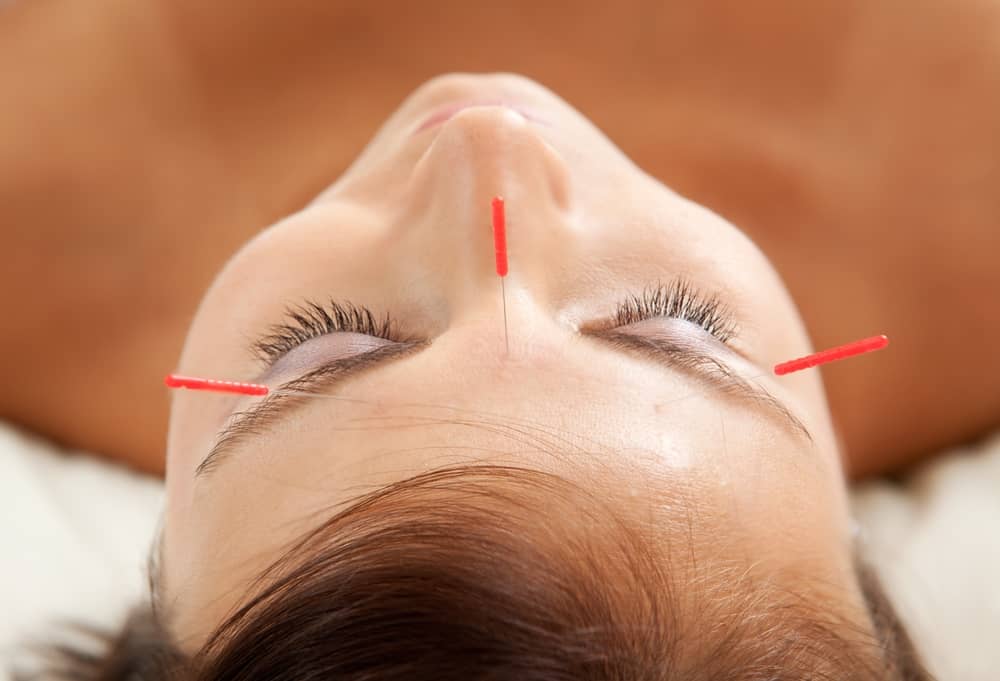
Traditional Acupuncture Can Reduce the Levels of Beta-Amyloid Plaque
An animal study published in 2013 in the journal International Review of Neurobiology found that acupuncture in Alzheimer’s improved synaptic plasticity and enhanced neurotransmitter activity as well as the production of peptides that support neuron growth and survival. Acupoint stimulation also reduced oxidative damage and the level of beta-amyloid plaques in the hippocampus and other areas of the brain. These changes were directly associated with increased activity in the temporal and prefrontal lobes, which are related to improved cognition and memory function.2 A study of traditional acupuncture, published in 2014 in PLOS One, enlisted 28 human Alzheimer’s patients. The researchers used functional magnetic resonance imaging (fMRI) to determine if stimulating the Tai chong and He gu acupoints (located on the foot and hand, respectively) for three minutes would have any effect on the hippocampus. The researchers recorded resting activity before acupuncture treatment and after. fMRI showed increased connectivity in most of the hippocampus-related regions compared to the resting state. The researchers concluded that stimulation at these two particular acupoints can enhance hippocampal connectivity in patients with Alzheimer’s disease.3 A couple of comments seem in order here. First of all, in acupuncture it’s common to treat an organ by applying needles to points on the body that are remote from the organ. The reason is that acupuncture is based on "meridians" – lines of energy or force, if you will – that run all over the body. Thus each of us has a kidney meridian that extends from one end of the body to the other. Likewise for the liver, brain and other organs.Electroacupuncture and Vascular Dementia
Electroacupuncture (EA) is basically the same as traditional acupuncture, with the addition of a small electric current transmitted through the needles for an increased ability to break up the blocked energy. Vascular dementia is the second most common type of dementia after Alzheimer’s disease. It’s caused by neurons that decay due to reduced blood flow to the brain, usually caused by damaged blood vessels (after a stroke, for example). Symptoms of vascular dementia include cognitive difficulties such as planning, problem-solving, following a series of steps (as in cooking from a recipe), and forgetfulness. Behavior issues such as mood swings, apathy, depression and anxiety are also common. In a study published in the Journal of Integrative Neuroscience, researchers tested the use of EA on the Baihui acupoint, located at the crown of the head midway between the tops of the ears, on animal models of vascular dementia. They found that animals treated with EA showed reduced "behavior deficits" and increased "long-term potentiation" (strengthening of the synapses).4 Another study showed that mice treated with electroacupuncture showed improved spatial learning and memory as well as a higher uptake rate of glucose in the hippocampus than did mice in the control group.5Musical Electroacupuncture Takes Treatment One Step Further
Traditional acupuncture is promising in reducing beta-amyloid plaques associated with Alzheimer’s disease. Electroacupuncture is possibly even more effective than that. And to top it off, musical electroacupuncture (MEA) shows even better results. Its advocates call MEA the next generation of electroacupuncture. The electric current that passes through the needles is modulated by the sound of classical music being played for the patient. A 2016 study published in the journal Neural Plasticity compared the efficacy of EA to that of MEA in a mouse model of Alzheimer’s disease. The researchers found that, similar to the study mentioned previously, that EA improved spatial learning, memory and glucose metabolism in the brain. They also noted reduced beta-amyloid plaques in the frontal lobes, compared to the control group. But they found that the group receiving MEA treatment showed improved results greater than the EA group.6 This is perhaps not all that surprising, considering music therapy is very helpful in overcoming brain damage (see Vol. 3 Issue #355) If you’ve thought acupuncture was a waste of time, I urge you to reconsider. Studies show that it does improve the body and the brain and that it can be a viable option for improving the symptoms of vascular dementia and Alzheimer’s disease. I’ve done acupuncture for years – the traditional kind, not electroacupunture, much less musical electroacupuncture. I do it for my overall wellbeing. I don’t view it as a miracle cure for any particular disease, although some people DO experience "miracle cures" thanks to acupuncture. There’s no need to be scared of the needles. They’re extremely thin, nothing like the huge hypodermic needles used to take blood or inject vaccines and medicines. The pain is trivial to nonexistent. I always feel better after a treatment.- How acupuncture can relieve pain and improve sleep, digestion and emotional well-being.
- Effect and mechanism of acupuncture on Alzheimer's disease.
- Acupuncture modulates resting state hippocampal functional connectivity in Alzheimer disease.
- Electroacupuncture at Baihui acupoint (GV20) reverses behavior deficit and long-term potentiation through n-Methyl-D-Aspartate and transient receptor potential vanilloid subtype 1 receptors in middle cerebral artery occlusion rats.
- Electroacupuncture treatment improves learning-memory ability and brain glucose metabolism in a mouse model of Alzheimer’s disease: Using Morris water maze and Micro-PET.
- Musical electroacupuncture may be a better choice than electroacupuncture in a mouse model of Alzheimer’s disease.
